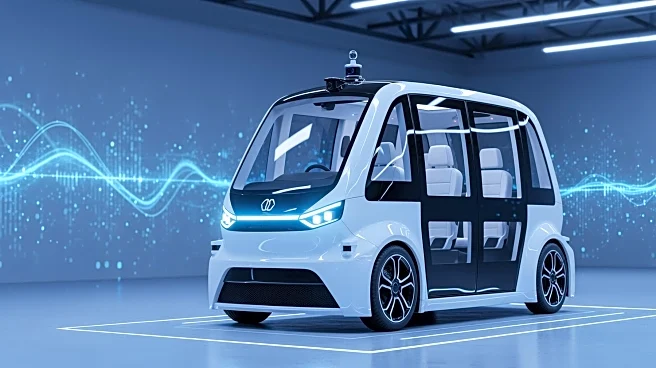What's Happening?
The Jacksonville Transportation Authority (JTA) is facing a significant challenge with its autonomous NAVI shuttle system due to a software issue. Balfour Beatty Construction LLC, the primary contractor
for the shuttle, has informed JTA that its software subcontractor, Oxa, will cease operations in the passenger transport business by the end of the year. This development threatens the self-driving capability of the shuttles, potentially requiring them to be operated manually for up to six months. JTA CEO Nat Ford assured that the city will not incur additional costs from this issue, as Balfour Beatty is contractually obligated to provide the service for five years. Discussions with alternative software providers, such as Mobileye and ADUS Tech, have already begun.
Why It's Important?
The software issue with JTA's NAVI shuttle system highlights the challenges of implementing new technologies in public transportation. The potential shift to manual operation could impact the efficiency and appeal of the $65 million autonomous shuttle program. This situation underscores the risks associated with pioneering unproven technologies, as noted by Councilmember Rory Diamond, who suggested that the project might need reevaluation. The outcome of this issue could influence future decisions on adopting autonomous technology in public transit systems across the U.S., affecting stakeholders such as technology providers, city planners, and commuters.
What's Next?
JTA is actively seeking a new software provider to restore the autonomous function of the NAVI shuttles. The transition to a new provider could take up to half a year, during which the shuttles will be manually operated. JTA plans to hold Balfour Beatty accountable for fulfilling its contractual obligations, ensuring that the city does not bear additional costs. The resolution of this issue will be closely watched by other cities considering similar autonomous transit solutions, potentially influencing their strategies and partnerships.
Beyond the Headlines
This situation raises broader questions about the reliability and sustainability of autonomous technology in public transportation. Ethical considerations regarding safety and accountability in the event of technological failures are critical. The long-term implications could include increased scrutiny on contracts and partnerships with technology providers, as well as a reevaluation of the feasibility of autonomous systems in urban environments.









